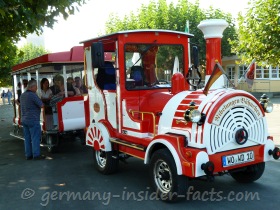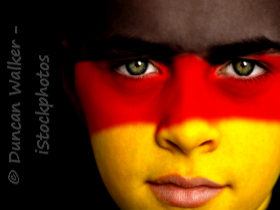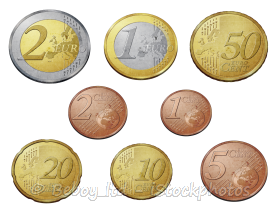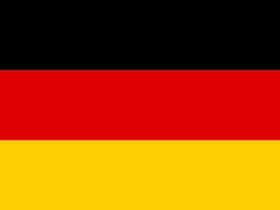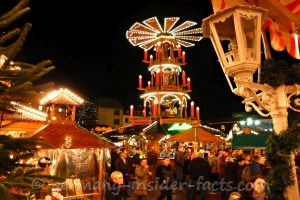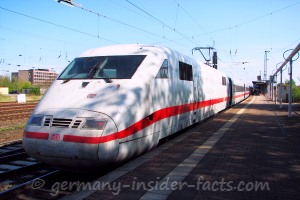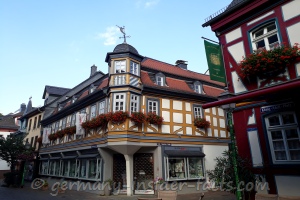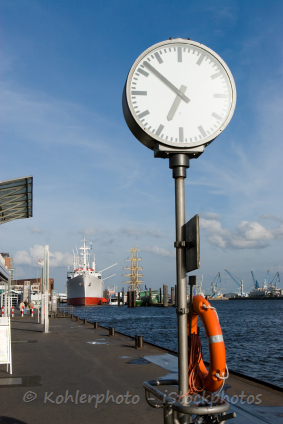Time in Germany
Facts about the local time and time zones in Germany
What is the time in Germany? Is there daylight saving time? Here you will find the general facts on German time.
The Current German Time is ...
We are now on regular Central European Time since 2:00am on 29 October
2023. Germany will be back to Daylight Saving on Sunday 31.03.2024.
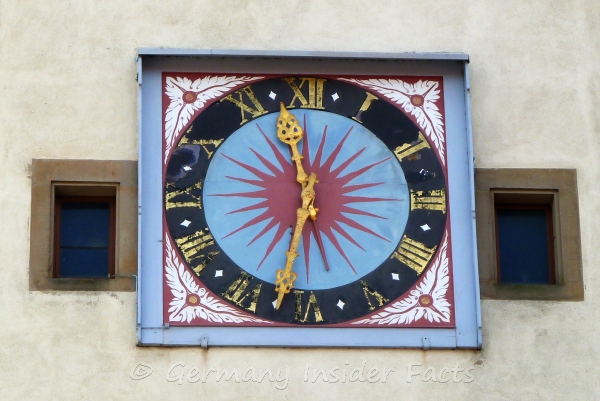 Clock on Siebersturm, Rothenburg Germany
Clock on Siebersturm, Rothenburg Germany
When the clocks are turned back one hour in October it is always
quite a "shock" that it gets dark an hour earlier in the evenings.
That's what I love about Daylight Savings, the long bright evenings
during summer.
German time is the Central European Time (CET) or Mitteleuropäische Zeit (MEZ), which is UTC+1. UTC means Coordinated Universal Time. Practically, this is the same as Greenwich Mean Time (GMT).
History of Daylight Saving Time (DST)
Germany was the first country in Europe to introduce Sommerzeit at
the end of April 1916. This was during WW I and it was meant to save
energy. Other European countries followed. However, DST was not very
popular, so it was stopped in most countries at the end of the war in
1918.
Germany changed back to MEZ in 1919. Short periods of using Daylight
saving time followed during the second world war and after the war.
1980 West and East Germany agreed to use DST like many other European
countries. As a result of the oil price crisis in the seventies, energy
should be saved. Whether daylight saving saves energy or not is still
disputed. There are objections that changing the time twice a year makes
people ill and is stress for farm animals like cows.
So many people want to stop this! However, I am in favour with DST because I love the long bright summer nights!
In the beginning DST was from the last Sunday in March to the last
Sunday in September. In 1996 DST was adapted internationally within the
European Union, and it is now from the last Sunday in March until the
last Sunday in October.
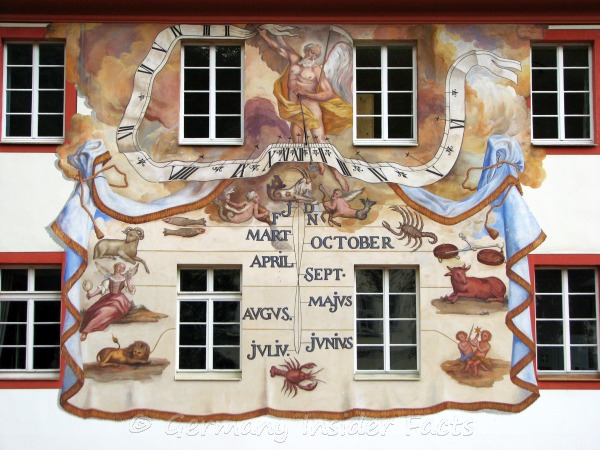 Beautiful sundial, St. Blasien
Beautiful sundial, St. Blasien
When daylight saving time starts in March, we set the clock one hour
forward, and lose one hour sleep that night. Of course, we get the hour
back in October, when the clock is set one hour back, and daylight
saving ends.
- CET = Central European Time = Mitteleuropäische Zeit = UTC+1
- UTC = Coordinated Universal Time
- CEST = Central European Summer Time = Mitteleuropäische Sommerzeit
= UTC+ 2 - DST = Daylight Saving Time To make things easier, we just say Sommerzeit (summer time) and Winterzeit (winter time) in Germany.
Time Zones in Germany
You don't need to worry about different time zones when you travel in Germany. There is only one, the CET.
Once you have set your watch you don't need to worry about the correct German time anymore.
Actually, all of Germany's neighbouring countries belong to the Central European Time Zone.
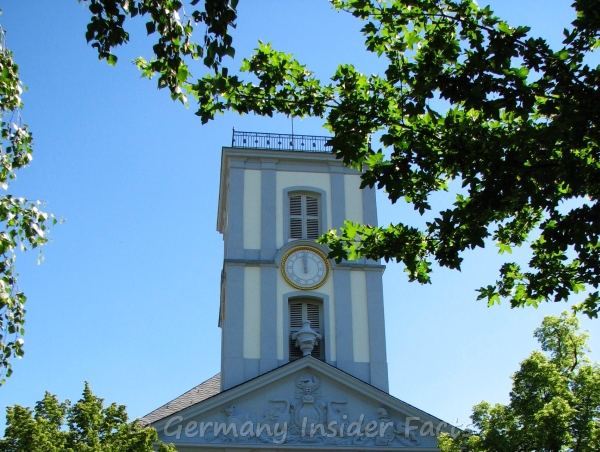
Checking the time when you travel around is easy. Modern clocks and
wonderful old clocks on public buildings, churches, train stations
almost always tell you the current time in Germany. Although it might
take a couple of days until all clocks, that are not radio controlled,
are set to the correct time.
Be prepared that clocks in church towers will often remind you about the
current time in the middle of the night, whereas sundials are
definitely quiet.
Discover more interesting facts about Germany
- Home ›
- General Facts ›
- German Time

